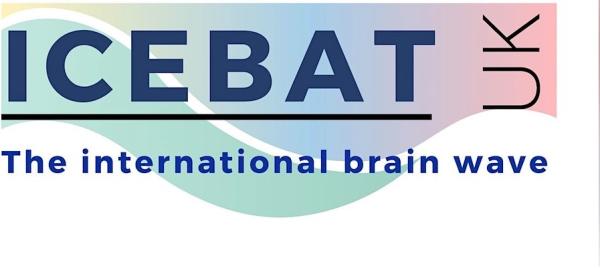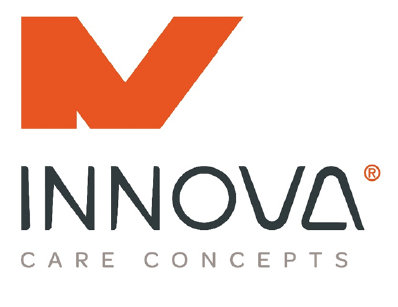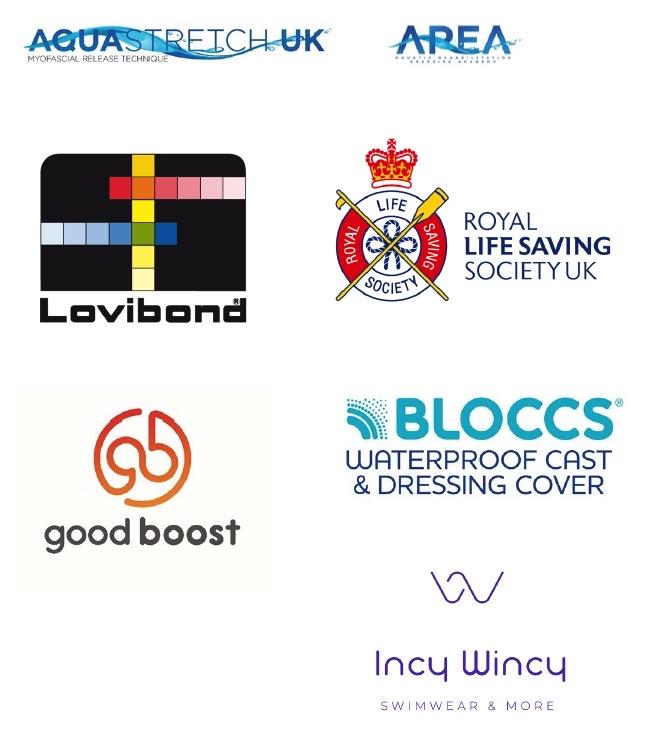Please find below the ICEBAT UK 2024 Programme.

Friday 21st June 2024
11:30-12:20 | Registration with tea / coffee /packed lunch |
|
12:20-12.30 | Opening Address | Sarah Wratten, UK |
Plenary Session 1: Pool activity influences neuronal networks - Chair: Oliver Krouwel, UK
12:30-13:30 K1 | Lifestyle & chronic pain: opportunities for aquatic therapy | Jo Nijs, Belgium |
13:30-14:30 K2 | Water immersion for promoting sensorimotor neuroplasticity | Daisuke Sato, Japan |
14:30-15:00 | Tea break and poster session: Series 1 (please scroll down to see allocations) |
Plenary Session 2: Oral presentations 1 - 5 - Chair: Johan Lambeck, NL
15:00-15:12 O1 | Considerations for aquatic high intensity interval training to improve exercise capacity in adults with rheumatic musculoskeletal diseases- the aquahigh randomised controlled trial | Heidi Bunæs-Næss et al, Norway |
15:12-15:24 O2 | The effect of ai chi on executive functions, prefrontal activation, and autonomic nervous system in healthy elderly | Pei-Hsin Ku et al, Taiwan |
15:24-15:36 O3 | Stroke toolkit for aquatic rehabilitation and recreation therapy (STARRT): the process of a participatory design | Andresa Marinho-Buzelli et al, Canada |
15:36-15:48 O4 | Comparison of aquatic physical therapy protocols in the gait of children with cerebral palsy: randomized and blinded control trial | Caio Castro et al, Brazil |
15.48-16.00 O5 | Effect of water- and land-based exercise on lung function in children with post covid-19 condition: a randomized controlled trial | Anna Ogonowska-Slodownik et al, Poland |
16:00-16:30 | Tea break and poster session: Series 2 |
Plenary Session 3: Research, measurements, and the transfer into practice - Chair: CG Prashanth, Qatar
16:30-17:15 K3 | Artificial Intelligence in aquatic exercise | Ben Waller, UK |
17:15-18:00 K4 | Spotlight on people with low back pain and on falls prevention | Stelios Psycharakis, UK |
Saturday 22nd June 2024
Plenary Session 4: Go to the future in clinical applications - Chair: Caroline Bamat, UK
09:15-10:00 K5 | Aquatic therapy for Parkinson’s disease: international evidence-based guidelines | Louise Carrol, Ireland |
10:00-10:45 K6 | Beyond guidelines and biomechanics to empowering people with hip and knee osteoarthritis to move for optimal outcomes in aquatic therapy | Sophie Heywood, Australia |
10:45-11:15 | Tea break and poster session: series 3 |
Plenary Session 5: Oral presentations 6 - 10 Chair: Daisuke Sato, Japan
11:15-11:27 O6 | Development of an Aquatic Observation Instrument for Children with ASD: reliability and validity | Patty van ‘t Hooft et al, The Netherlands |
11:27-11:39 O7 | Acute effect of moderate-intensity aquatic treadmill exercise on cognitive function and cerebral blood flow for healthy elderly: a randomized controlled trial | Billy So et al, Hong-Kong |
11:39-11:51 O8 | The acute effect of an aqua-pilates fitness class using floating exercise mats on static balance parameters | Marianna Kotzamanidou et al, Greece |
11.51-12:03 O9 | Importance of aquatic exercise in a community based musculoskeletal wellness solution | Ben Waller et al, United Kingdom |
12.03-12.15 O10 | Effect of aquatic therapy on cardio-respiratory endurance and quality of life in adolescent and young adult's cerebral palsy | Dipti Patil et al, India |
12:15-13:15 | Lunch |
Plenary Session 6: The continuum of change - Chair: Alison Bonnyman, Canada
13:15-13:45 K7 | Energy usage and savings in a hydrotherapy pool | Ian Ogilvie, UK |
13:45-14:00 | Open Forum about the keynote |
|
14:00-14:30 K8 | From molecule and cell to behavioural change. Clinical applications of neurophysiology of immersion + aquatic exercise | Javier Güeita Spain |
14:30-15.00 K9 | Clinical QiShui: a coordinative and myofascial aquatic therapy concept | Urs Gamper, Switzerland |
15:00-15:30 | Tea break and poster session: series 4 |
Pool Session 1 - Chair: Eugenia Hernandez, USA and Sarah Wratten, UK
15:30-16:10 Pool 1 | Beyond guidelines and biomechanics to empowering people with hip and knee osteoarthritis to move for optimal outcomes in aquatic therapy | Sophie Heywwod, Australia |
16:10-16:50 Pool 2 | Clinical applications of neurophysiology | Javier Güeita, Spain |
16:50-17:30 Pool 3 | Aquatic gamification: move and think | Johan Lambeck, Netherlands |
Saturday June 22nd @ 7 pm - Gala Dinner
Sunday June 23rd 2024
09.00-09.15 | Poster session: series 5 |
|
Pool Session 2 Rosane Barroso, Qatar and Sarah Wratten, UK
09:15-10:00 Pool 4 | Aquatic Physiotherapy in clinical practice: individual neuro single case studies. | Jacqueline Pattman, UK |
10:00-10:45 Pool 5 | AquaQiShui | Felix Castellanos, Spain |
10:45-11:15 | Tea break and poster session: series 6 |
Plenary Session 7: “The dose makes whether a thing is poison” (Paracelsus, 1493-1541) - Chair: Sarah Wratten, UK
11:15-11.45 K10 | Aquatic Physiotherapy in clinical practice: individual neuro single case studies – using film footage | Jacqueline Pattman, UK |
11:45-12:15 | The future of aquatic therapy: closing words | Sarah Wratten UK Johan Lambeck NL |
Poster sessions
Friday June 21st 2024
Series 1 (Poster booth 1-4)
14:45-14:55 PB 1 | The physical fitness comparison between water-based aerobic exercises and other aquatic interventions in older adults: a meta-analysis (P1). | Christine Albertson, Brazil |
14:45-14:55 PB 2 | Added effects of aquatic therapy on functional abilities on pontine stroke – a case study (P21). | Harshvi Dedhia, India |
14:45-14:55 PB 3 | A contribute of dual media kinematic analysis for shoulder movement on deep water exercises (P20). | Maria Conceição Graça, Portugal |
14:45-14:55 PB 4 | Comparison of energy expenditure of individuals with Duchenne muscular dystrophy in the sitting posture on the ground and in water (P12). | Caio Castro, Brazil |
Series 2 (Poster booth 1-4)
16:15-16:25 PB 1 | The long-term adaptations of a combined swimming and aquatic therapy intervention in an adult person with high-functioning autism: a case study (P3). | Marianna Kotzamanidou, Greece |
16:15-16:25 PB 2 | Piloting quantification and analysis of aquatic resistance training (P2). | Eunan McShane, United Kingdom |
16:15-16:25 PB 3 | Research methodology: effects of aquatic therapy for stroke survivors (P6). | Kornélia Krausz, Hungary |
16:15-16:25 PB 4 | Development and feasibility of a swimming programme as a rehabilitation modality for people with chronic low back pain: a mixed methods project (P24).
| Helen Oakes, United Kingdom |
Saturday June 22nd 2024
Series 3 (Poster booth 1-4)
11:00-11:10 PB 1 | Using the FITT principle to inform aquatic therapy practice after stroke: a scoping review (P17). | Alison Bonnyman, Canada |
11:00-11:10 PB 2 | Impact of key performance indicator on efficiency in an aquatic therapy facility as quality performance metric – an experience from QRI (P11). | Gopal Prashanth, Qatar |
11:00-11:10 PB 3 | Learning aquatic skills? Stay balanced (P13). | Patty van 't Hooft, The Netherlands |
11:00-11:10 PB 4 | The acute effect of Bad Ragaz Ring Method lateral flexion pattern on the thoracolumbar fascia indention parameters (P16). | Vassilios Panoutsakopoulos, Greece |
Series 4 (Poster booth 1-4)
14:45-14:55 PB 1 | Aquatic based therapy interventions for children with autism spectrum disorders: a mixed methods systematic review (P10). | Tanvi Shah, United Kingdom |
14:45-14:55 PB 2 | Implementation considerations of aquatic therapy post-stroke: a qualitative study (P15). | Andresa Marinho-Buzelli, Canada |
14:45-14:55 PB 3 | Can aquatic exercise improve brain function in disabled persons? A primary quantitative research (P4). | Evangelia Sanida, Greece |
14:45-14:55 PB 4 | Effect of detraining and training on balance performance, strength, and pain in older adult users of aquatic physiotherapy (P22). | Maria Conceição Graça, Portugal |
Sunday June 23rd 2024
Series 5 (Poster booth 1-3)
09:00-09:10 PB 1 | Aquatic therapy in congenital malformation during use of external fixator for bone lengthening: is it possible (P7). | Caio Castro, Brazil |
09:00-09:10 PB 2 | The power of water – optimizing water and exercise for vascular health (P14). | Jacob Tennant, United Kingdom |
09:00-09:10 PB 3 | Case report: hydrotherapy rehabilitation of a post COVID-19 patient with muscle weakness (P9). | Caroline Barmatz, United Kingdom |
Series 6 (Poster booth 1-3)
11.00-11:10 PB 1 | The effectiveness of aquatic exercises on functional mobility and motor impairments in patients with Parkinson’s disease: a systematic review (P23), | Samruddhi Naikwad, Scotland |
11.00-11:10 PB 2 | Feasibility of aquatic therapy for balance in spinal cord injury patients with less than 6 month of evolution (P18). | Raquel Menchero, Spain |
11.00-11:10 PB 3 | Acute effect of resistive aquatic high intensity interval training and aquatic high-intensity interval training on metabolic cost and perceived effort in active adults (P19). | Billy So, Hong-Kong |
programme_icebat-uk_final_2.docx
Our Gold Sponsor

Our Silver Sponsors

